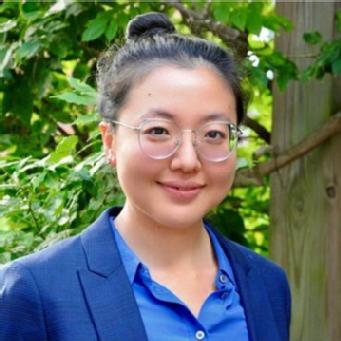Aruhan Shi

Rui (Aruhan) Shi
Research Interests
- Macroeconomics
- Expectation formation
- Artificial intelligence techniques
-
Supervisors
Contact Details
Email: a dot shi at warwick dot ac dot uk
Personal WebsiteLink opens in a new window
About me
I am a macroeconomist who uses general equilibrium models and artificial intelligence (AI) technologies to answer macroeconomic policy questions.
In my job market paper, I model learning agents in a general equilibrium framework with a monetary policy regime change. My research contributes to the understanding of how economic agents' behaviours adapt to past experience and policy changes. It is interdisciplinary, and combines economics (general equilibrium models) with computer science/AI technologies and neuroscience research on decision-makings.
I was a PhD intern at the IMF. I was an economic consultant at the Asian Development Bank from Sep 2021 to Mar 2022, analysing debt dynamics and fiscal sustainability. I was an academic visitor at the Bank of England from Jan to Jun 2020. I was a co-investigator in a Rebuilding Macroeconomics project "Deep Learning in a New Keynesian Model of Banking and Money CreationLink opens in a new window".
Teaching:
- Financial Economics: 3rd year BSc Economics module, Term 2 2019/20
- Intermediate Econometrics: 2nd year BSc Economics module, Term 2 2019/20
Research Affiliation
Working Papers
Can an AI agent hit a moving target?
Current versionLink opens in a new window: October 2022.
Abstract:
I model the belief formation and decision making processes of economic agents during a monetary policy regime change (an acceleration in the money supply) with a deep reinforcement learning algorithm in the AI literature. I show that when the money supply accelerates, the learning agents only adjust their actions, which include consumption and demand for real balance, after gathering learning experience for many periods. This delayed adjustments leads to low returns during transition periods. Once they start adjusting to the new environment, their welfare improves. Their changes in beliefs and actions lead to temporary inflation volatility. I also show that, 1. the AI agents who explores their environment more adapt to the policy regime change quicker, which leads to welfare improvements and less inflation volatility, and 2. the AI agents who have experienced a structural change adjust their beliefs and behaviours quicker than an inexperienced learning agent.
Deep Reinforcement Learning: Emerging Trends in Macroeconomics and Future Prospects
with Tohid Atashbar
Current version: IMF Working Paper No. 2022/259Link opens in a new window December 2022
Abstract:
The application of Deep Reinforcement Learning (DRL) in economics has been an area of active research in recent years. A number of recent works have shown how deep reinforcement learning can be used to study a variety of economic problems, including optimal policy-making, game theory, and bounded rationality. In this paper, after a theoretical introduction to deep reinforcement learning and various DRL algorithms, we provide an overview of the literature on deep reinforcement learning in economics, with a focus on the main applications of deep reinforcement learning in macromodeling. Then, we analyze the potentials and limitations of deep reinforcement learning in macroeconomics and identify a number of issues that need to be addressed in order for deep reinforcement learning to be more widely used in macro modeling.
Learning from Zero: How to Make Consumption-Saving Decisions in a Stochastic Environment with an AI Algorithm
Current Link opens in a new windowversionLink opens in a new window (August 2022)
Previous version: CESifo Working Paper version: No. 9255Link opens in a new window (August 2021)
Abstract:
I model the learning behaviours of a representative household in a stochastic optimal growth environment. I model explicitly this learning agent's decision-making strategy, their subjective belief, and their memory (and how the memory is used to update beliefs). This agent makes exploratory consumption-saving decisions facing income shocks. I impose a temporary shock and a permanent change to the agent's income process. Their behaviours facing changes are adaptive and follow the qualitative predictions of existing economic theories. Depends on how exploratory the agent is, their quantitative behaviours are different and lead to heterogeneous welfare. I also compare behaviours between AI agents and a rational expectations agent.
Deep Reinforcement Learning in a Monetary Model
joint with Mingli Chen, Andreas Joseph, Michael Kumhof, Xinlei Pan, and Xuan Zhou.
April 2021. Rebuilding Macroeconomics Working Paper Series No.58Link opens in a new window
